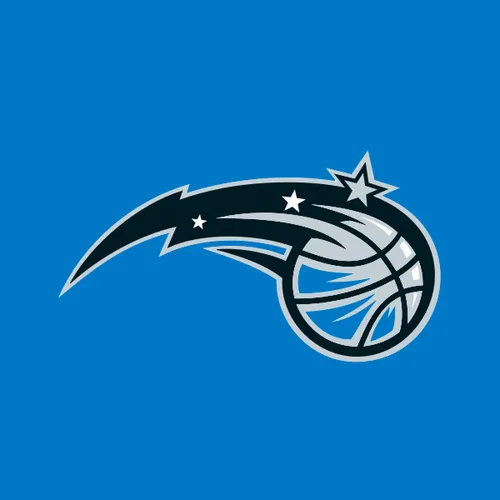







Technical Engineering Jobs in the Sports Industry: A Quick Guide
Introduction
The sports industry relies heavily on technical engineering expertise to develop innovative products, enhance athletic performance, and create cutting-edge facilities. As a technical engineering professional, you can play a vital role in shaping the future of sports and contribute to the industry's ongoing growth. In this guide, we will discuss the diverse opportunities within the sports industry for technical engineering professionals and offer insights into the skills and strategies needed to succeed in this field.
The Role of Technical Engineering Professionals in the Sports Industry
Technical engineering professionals contribute to the sports industry in various ways, including:
Designing and developing advanced sports equipment and apparel to improve athletic performance and safety
Creating innovative sporting facilities, such as stadiums, arenas, and training centers, that incorporate the latest technology
Developing solutions for sports-related data collection, analysis, and visualization to inform coaching and training strategies
Ensuring the structural integrity and safety of sports infrastructure, from small-scale installations to large, complex structures
Types of Technical Engineering Jobs in the Sports Industry
There are numerous technical engineering roles within the sports industry, including:
Sports Equipment Engineers: These professionals design and develop cutting-edge sports equipment, ranging from protective gear and footwear to performance-enhancing tools. They use their expertise in materials science, biomechanics, and engineering principles to create innovative products that meet the evolving needs of athletes and improve their performance.
Sports Facility Engineers: These engineers specialize in the design, construction, and maintenance of sports facilities such as stadiums, arenas, and training centers. They work closely with architects, civil engineers, and other professionals to ensure that facilities meet the specific requirements of various sports, comply with safety standards, and provide an enjoyable experience for athletes and spectators.
Biomechanical Engineers: Focused on understanding the mechanics of human movement, biomechanical engineers apply their knowledge to enhance athletic performance and reduce the risk of injury. They may work on developing wearable technology, creating custom orthotics or prosthetics, or designing training equipment to improve athlete performance.
Sports Data Engineers: As data-driven decision-making becomes increasingly important in the sports industry, sports data engineers are responsible for designing and implementing systems that collect, process, and analyze vast amounts of data. They work closely with sports analysts, data scientists, and other stakeholders to provide insights that inform strategy, player performance, and fan engagement.
Broadcast and Media Engineers: With the growing demand for high-quality sports broadcasts and multimedia content, broadcast and media engineers play a crucial role in delivering a seamless experience for viewers. They are responsible for designing, installing, and maintaining the technical infrastructure required for live sports production, including cameras, sound systems, and transmission equipment.
Wearable Technology Engineers: These engineers focus on developing wearable devices and smart clothing that monitor and analyze athlete performance, health, and well-being. They combine their expertise in electronics, materials science, and software development to create innovative products that can help athletes train more effectively and reduce injury risk.
Salaries for Technical Engineering Jobs in the Sports Industry
Salaries for technical engineering professionals in the sports industry vary based on experience, location, and job type. Typical salary ranges are as follows:
Entry-level: $45,000–65,000 USD per year
Junior-level: $65,000–80,000 USD per year
Intermediate-level: $80,000–100,000 USD per year
Senior-level: $100,000–150,000+ USD per year
Essential Skills for Success in Technical Engineering in the Sports Industry
To excel in a technical engineering role within the sports industry, you'll need a combination of technical expertise, industry knowledge, and soft skills. Key skills include:
Strong foundation in engineering principles and practices
Knowledge of sports-specific requirements and regulations
Proficiency in relevant software and technology tools
Analytical and problem-solving abilities
Creativity and innovation
Excellent communication and teamwork skills
Tips for Landing a Technical Engineering Job in the Sports Industry
To increase your chances of securing a technical engineering job in the sports industry, consider the following tips:
Obtain a relevant engineering degree and, if possible, specialize in a sports-related field
Gain hands-on experience through internships or co-op programs within the sports industry by using Rebound
Network with industry professionals, attend sports engineering conferences, and join relevant organizations
Develop a strong portfolio showcasing your technical skills, industry knowledge, and passion for sports
Tailor your resume and cover letter to highlight your experience and skills relevant to the specific job and company you're applying for
Conclusion
Technical engineering professionals play a crucial role in the sports industry, contributing to the development of innovative products and facilities that enhance athletic performance and safety. By understanding the various job opportunities, salary expectations, and essential skills, you can better position yourself for success in the sports industry. Follow the tips outlined in this guide, invest in your education and hands-on experience, and leverage your network to increase your chances of landing a rewarding technical engineering job in the sports industry. The sports sector offers a unique and exciting environment for technical engineering professionals to apply their skills and passion, driving innovation and shaping the future of sports for athletes and fans alike.


























